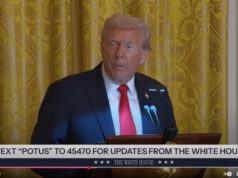
Language and cultural barriers for immigrants and non-English speakers in the United States can significantly impact their access to healthcare services. Many immigrant families arrive in the country with no resources and little money, making it harder for them to access and pay for high-quality medical care.
In some cases, they are undocumented and cannot apply for government services. Language barriers make the struggle harder, and cultural differences often create a situation where communities and providers aren’t even aware of the scope of the need.
Limited Health Insurance Coverage
Insurance coverage is a vital aspect of healthcare in the United States and obtaining it can be a huge struggle for immigrants. Many immigrants, particularly undocumented immigrants, face barriers in obtaining health insurance coverage. In addition, undocumented immigrants, as well as those who have higher incomes, may not be eligible for public health insurance programs like Medicaid, Medicare, or Affordable Care Act (ACA) subsidies.
Without insurance, it can be difficult to schedule or access many procedures, and paying out of pocket is prohibitive for most people. This can lead to delays in seeking medical care or receiving necessary treatments, increasing the harm caused by the conditions and increasing the chance of experiencing a medical emergency that could have been prevented by timely care.
This can create an expensive cycle of dependence on emergency rooms and urgent care facilities. This happens when families delay treatment until the condition is dangerous, then receive expensive emergency care which they cannot afford. Because they struggle to pay their expensive emergency or urgent care bills, it becomes more difficult to receive treatment in the future, leading to more delays and emergency treatments.
Language and Communication Barriers
Language is one of the greatest barriers between immigrants and adequate healthcare. Non-English speakers encounter difficulties communicating with healthcare providers and understanding medical information. In many cases, they may struggle to even find the medical providers and offices they need because they have trouble reading the maps and signs for their area. Once they do find a provider, limited proficiency in English can make it challenging to explain symptoms, understand diagnoses, follow treatment plans, and provide informed consent. Access to interpreters or bilingual healthcare professionals may be limited, leading to miscommunication and potential gaps in care.
Providing adequate translation services and medical brochures in the immigrant’s language can help bridge the gap for non-native healthcare seekers and their children, and can help ensure that important dosage instructions and other information aren’t misunderstood. Creating provider websites in multiple languages can also help eliminate access problems. For example, creating online profiles under the term “dentista” or “pediatra” can help Spanish speakers find adequate care.
Cultural and Religious Differences
Cultural and religious beliefs can play a big part in the acceptance and understanding of healthcare techniques and methods. Immigrants may have different cultural beliefs, health practices, or religious preferences that can impact their healthcare experiences in a variety of ways.
Providers may not be familiar with these cultural nuances or may hold biases that can hinder effective care delivery and patient-physician trust. In addition, some healthcare practices are considered sinful or misunderstood in some cultures, and providers have to find a way to respectfully explain and clarify the purposes of these treatments while accepting the possibility that the patient or client may choose to forgo treatment or go with an alternative technique.
Fear of Immigration Enforcement
Fear of deportation is a common and understandable one among both legal and undocumented immigrants. Some immigrants, particularly those who are undocumented or have family members without legal status, may fear seeking healthcare services due to concerns about immigration enforcement. This fear can prevent them from accessing necessary medical care, leading to undiagnosed or untreated conditions and potential public health risks. In addition, it can keep them from accessing or trying to access medical insurance as well as many government services such as Medicaid, SNAP benefits, Women, Infants, and Children benefits (WIC), and other programs that are designed to help people stay healthy and get medical care.
Limited Access to Healthcare Facilities
Physical access to needed facilities can be a barrier for some immigrants depending on the situation and location they find themselves in. Immigrants, especially those in rural or low-income areas, may face challenges in accessing healthcare facilities due to limited transportation options, long distances, and a lack of nearby providers. Low-income barriers such as lack of personal transportation and the inability to take time away from work can also create significant barriers to receiving timely and appropriate care.
Lack of Health Education and Awareness
Finally, a lack of health education can create a barrier for some families. Immigrants may have limited knowledge about available healthcare services, preventive care, and health promotion resources in their new country. This is usually exacerbated by the language barrier and financial struggles. This lack of information can hinder their ability to make informed decisions about their health and access appropriate care when needed. It is vital for providers and communities to promote healthcare through information campaigns targeted to immigrants which can allow them to learn about the healthcare available and point them in the direction of helpful, multi-lingual resources and information.
Efforts by governments, providers, non-profits, and communities must continue to address these barriers, such as providing language assistance services, cultural competency training for healthcare professionals, and expanding access to affordable healthcare options for immigrants.
Progress is being made, however, significant gaps still exist, and ongoing advocacy and policy changes are necessary to ensure equitable healthcare access for all individuals, regardless of their immigration status or language proficiency.
Disclaimer
The information contained in South Florida Reporter is for general information purposes only.
The South Florida Reporter assumes no responsibility for errors or omissions in the contents of the Service.
In no event shall the South Florida Reporter be liable for any special, direct, indirect, consequential, or incidental damages or any damages whatsoever, whether in an action of contract, negligence or other tort, arising out of or in connection with the use of the Service or the contents of the Service. The Company reserves the right to make additions, deletions, or modifications to the contents of the Service at any time without prior notice.
The Company does not warrant that the Service is free of viruses or other harmful components












